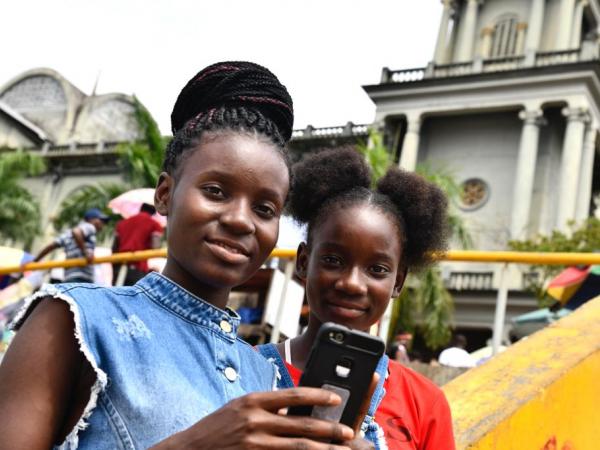Inequality in access to the internet and information and communication technologies, known as the digital divide, is one of the main challenges currently facing the Ministry of ICT. And it is that although in the country, In recent years, work had been done to connect more people in rural areas, the pandemic increased this precarious reality that continues to affect the least favored.
(Challenges to be faced by Carmen Ligia Valderrama, new ICT minister).
Just look at the panorama in front of internet access. According to the basic indicators of possession and use of ICTs from Dane for 2019, 51.9% of Colombian households had an internet connection. In the capital cities, this percentage of connectivity corresponded to 61.6%, while in the populated and dispersed rural centers this figure reached 20.7%.
For its part, the data from the most recent survey of Information and Communication Technologies in Households – ENTIC Hogares del Dane, highlights that during 2020, 69.8% of people used the internet anywhere and from any device in the national territory, with a higher proportion in capital cities (78.0%) and a lower proportion in populated centers and dispersed rural areas (43.1%).
Faced with this reality, Alberto Samuel Yohai, president of the Colombian Chamber of Informatics and Telecommunications (CCIT), pointed out that even when progress has been made in the country, “Thanks to the efforts of the ICT sector together with the National Government”, connect to more remote areas of Colombia “It continues to be a priority and a job that requires an important value chain.”
(Connectivity, dominance and 5G, the pending ones of MinTIC).
“We must together ensure that there are fewer and fewer barriers to the deployment of infrastructure, in order to ensure that investment budgets can be executed in the most efficient way. Closing the digital divide requires a very important value chain. Likewise, it is necessary to have a public policy that adjusts to the reality of the country. Clearly requires a great commitment from the ICT sector “Yohai pointed out.
FROM THE BUSINESS
From the private sector, technology and telecommunications companies that operate in the national territory have also expressed the need to continue working on connectivity, infrastructure and education in IT (information technology).
According to José Juan Haro, director of wholesale business and public affairs at Telefónica, in order for all Colombians to have access to the benefits of digitization, four important points must be resolved: “Spectrum costs, new models to reach rural areas, promotion of state-of-the-art networks; and deployment barriers ”.
“Today more than ever it is necessary to advance in inclusive connectivity, we will not be able to speak of a digital society when a large part of the population is disconnected. The costs of spectrum assignment play a relevant role because the policies that are defined can limit or accelerate the deployment and massification of the networks, as well as raise the costs of these services. Therefore, we have insisted on the need for this definition to be made from a model of social maximization “Haro said.
In terms of figures, the Telefónica spokesperson highlighted that in Colombia of the 16.4 million homes only 56.5% (9.2 million) had internet service at the time the pandemic struck. “Both the Government and the regulators must work on public strategies that promote investment and encourage new forms of cooperation for network deployment”, Haro added.
For his part, José Castro, General Manager of Softline, pointed out that the Government should be an important actor that promotes the training of talent in technology throughout the country, as well as “It should continue making investments in education, in which it achieves strategic alliances with technology manufacturers with the main objective of opening work centers in Colombia and generating employment opportunities”.
JOHANA LORDUY














